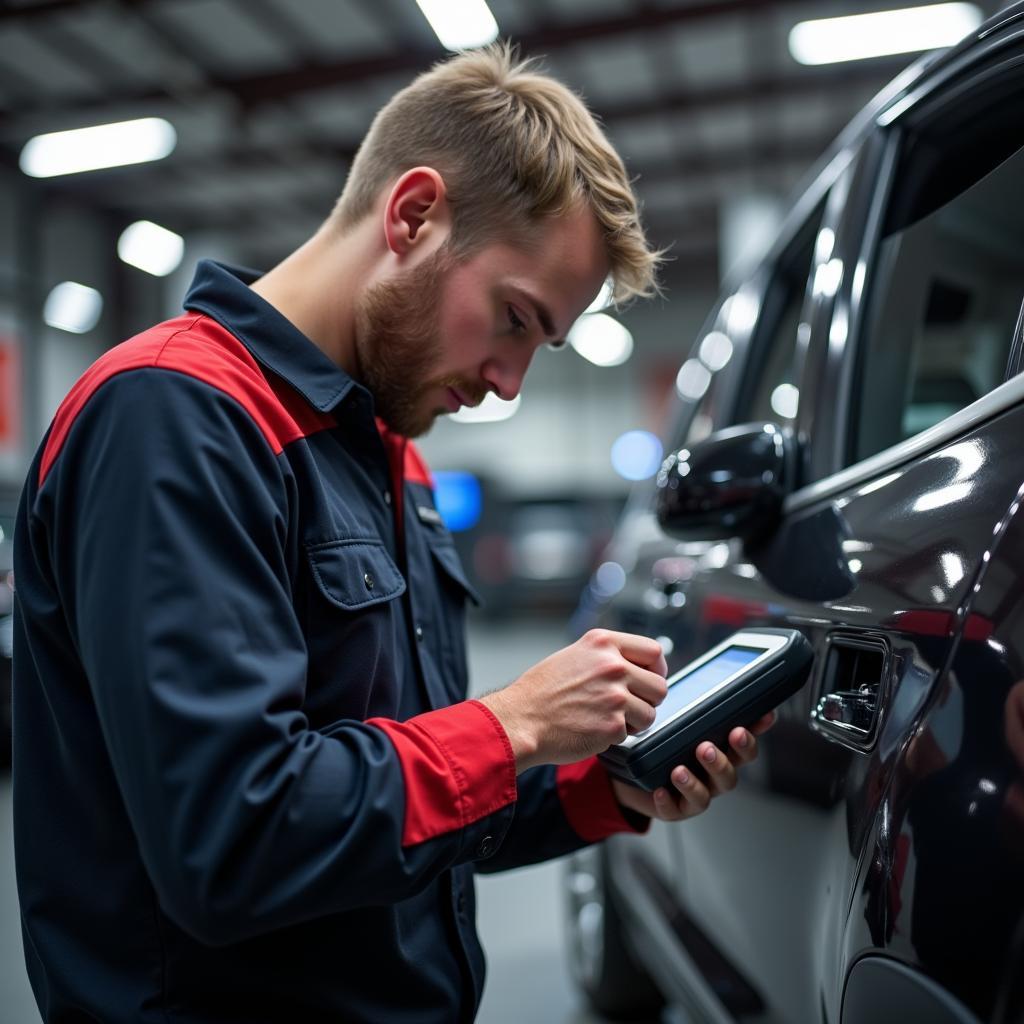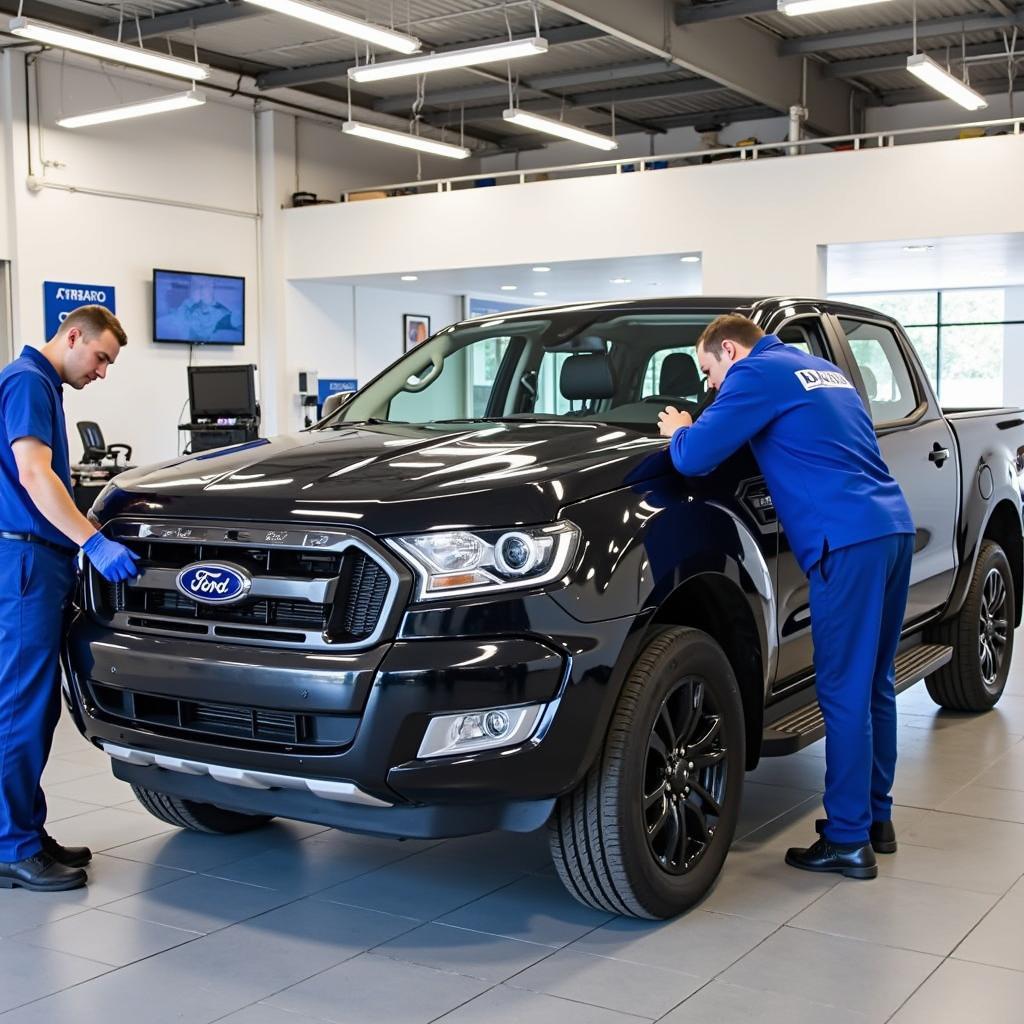What Car Service Departments Do to Make Operations Go Smoother
Running a successful car service department involves a delicate dance of efficiency, expertise, and exceptional customer service. It’s about ensuring that every vehicle that rolls in receives the best possible care while optimizing operations for maximum productivity. So, what exactly do car service departments do to make this happen? Let’s delve into the intricacies of their operations and uncover the secrets to their success.
 Car Service Department Workflow
Car Service Department Workflow
Streamlining Operations for Peak Efficiency
Efficiency is the cornerstone of any successful car service department. From the moment a customer schedules an appointment to the final invoice, every step in the process must be optimized for speed and accuracy.
- Appointment Scheduling and Reminders: Utilizing online booking systems and automated reminders minimizes no-shows and keeps the schedule running smoothly.
- Efficient Vehicle Intake: A standardized intake process ensures that all necessary information is gathered upfront, reducing delays and miscommunication.
- Organized Workspaces and Inventory Management: A well-organized workspace and meticulous inventory management system ensure that technicians have the tools and parts they need, precisely when needed.
These seemingly small details contribute significantly to minimizing downtime and maximizing productivity.
Investing in Cutting-Edge Diagnostic Technology
The automotive industry is constantly evolving, with vehicles becoming increasingly complex. To keep pace, car service departments invest heavily in state-of-the-art diagnostic equipment.
- Advanced Diagnostic Scanners: These sophisticated tools allow technicians to quickly and accurately identify issues by reading the vehicle’s onboard computer system.
- Digital Imaging Equipment: Utilizing digital cameras and specialized software, technicians can document the vehicle’s condition upon arrival and provide visual evidence of any damage or necessary repairs.
- Data Analytics and Predictive Maintenance: By leveraging data analytics, service departments can identify patterns and predict potential issues, enabling proactive maintenance and minimizing costly breakdowns.
Investing in such advanced technology ensures that car service departments stay ahead of the curve and provide the highest level of service to their customers.
 Technician Using Diagnostic Scanner on a Vehicle
Technician Using Diagnostic Scanner on a Vehicle
Cultivating a Culture of Continuous Learning
The automotive landscape is constantly evolving, with new technologies and repair techniques emerging regularly. To remain at the forefront of the industry, car service departments prioritize continuous learning and development for their technicians.
- Manufacturer Training and Certifications: Technicians undergo rigorous training programs provided by vehicle manufacturers, ensuring they are equipped with the latest knowledge and skills for servicing specific makes and models.
- Industry Conferences and Workshops: Attending industry events allows technicians to stay updated on emerging trends, best practices, and innovative repair solutions.
- Online Learning Platforms and Resources: Car service departments often subscribe to online learning platforms that provide technicians with access to a wealth of technical information, training materials, and interactive modules.
By fostering a culture of continuous learning, car service departments empower their technicians to deliver the highest quality workmanship and stay ahead of the technological curve.
Building Trust Through Transparent Communication
Building strong relationships with customers is paramount for any successful car service department. Open and transparent communication is key to establishing trust and ensuring customer satisfaction.
- Detailed Inspection Reports: Providing customers with comprehensive inspection reports, including photographs and clear explanations of any identified issues, helps them make informed decisions about their vehicle’s maintenance.
- Proactive Communication and Updates: Keeping customers informed throughout the repair process, whether it’s providing status updates, explaining unexpected delays, or discussing repair options, fosters transparency and minimizes anxiety.
- Addressing Concerns and Feedback: Actively listening to customer concerns and addressing any issues promptly and professionally demonstrates a commitment to customer satisfaction and builds long-term loyalty.
By prioritizing open and honest communication, car service departments can create a positive customer experience and establish themselves as trusted advisors.
 Service Advisor Explaining Repair to Customer
Service Advisor Explaining Repair to Customer
Conclusion
From streamlined operations and cutting-edge technology to a commitment to continuous learning and transparent communication, car service departments employ a multifaceted approach to ensure smooth and efficient operations. These efforts are not merely about fixing cars; they’re about building trust with customers and delivering an exceptional service experience that keeps vehicles running smoothly and customers coming back for years to come.

